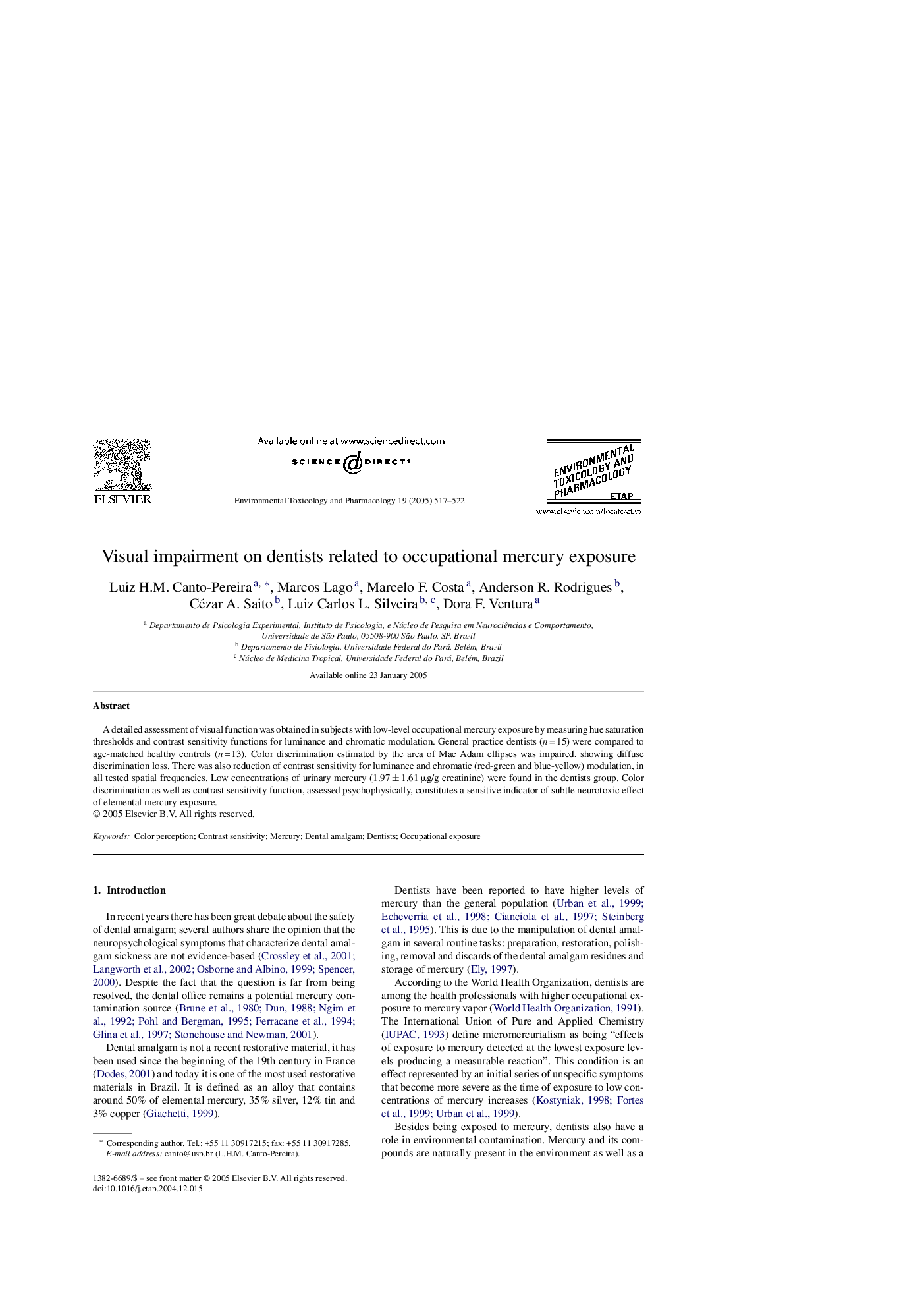| Article ID | Journal | Published Year | Pages | File Type |
|---|---|---|---|---|
| 9030075 | Environmental Toxicology and Pharmacology | 2005 | 6 Pages |
Abstract
A detailed assessment of visual function was obtained in subjects with low-level occupational mercury exposure by measuring hue saturation thresholds and contrast sensitivity functions for luminance and chromatic modulation. General practice dentists (n = 15) were compared to age-matched healthy controls (n = 13). Color discrimination estimated by the area of Mac Adam ellipses was impaired, showing diffuse discrimination loss. There was also reduction of contrast sensitivity for luminance and chromatic (red-green and blue-yellow) modulation, in all tested spatial frequencies. Low concentrations of urinary mercury (1.97 ± 1.61 μg/g creatinine) were found in the dentists group. Color discrimination as well as contrast sensitivity function, assessed psychophysically, constitutes a sensitive indicator of subtle neurotoxic effect of elemental mercury exposure.
Related Topics
Life Sciences
Environmental Science
Health, Toxicology and Mutagenesis
Authors
Luiz H.M. Canto-Pereira, Marcos Lago, Marcelo F. Costa, Anderson R. Rodrigues, Cézar A. Saito, Luiz Carlos L. Silveira, Dora F. Ventura,
